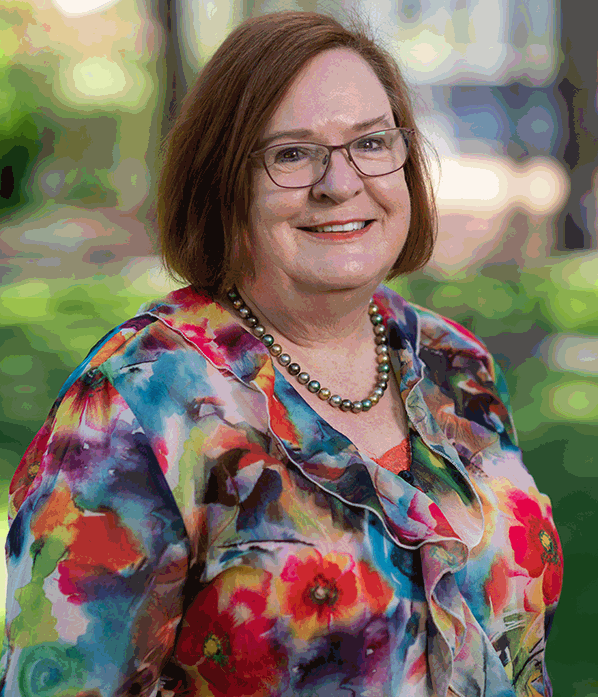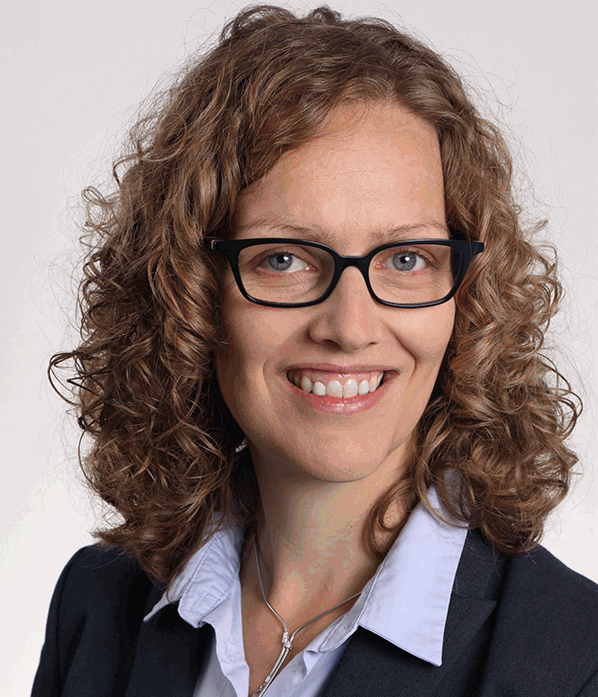
Dr Mandy Stanley

Dr Birgit Prodinger
The COVID-19 global pandemic urges occupational scientists to examine such world events through an occupational lens. Few other events have been experienced in such a significant way across the globe and, whilst the impact and response has differed in different geographies, we have all experienced – temporarily or continuously – occupational disruption. Reflecting that global impact, the papers in this issue were submitted by authors from Europe, Africa, Australasia, and North America, providing readers with a variety of perspectives.
Many educators of occupational science and/or occupational therapy took innovative approaches to their teaching and learning and required their students to examine how COVID-19 and the public health responses impacted on their lives as students. The first three papers in this issue are examples with students from Turkey and from the US.
The students in Turkey examined their time use in relation to occupational balance and temporal life satisfaction during the isolation period in May 2020 (Salar et al., Citation2022). Students who spent more time in study, socialising, and exercise had better occupational balance and those who spent more time watching TV had lower occupational balance. Socialising and exercise were adapted to occur within the confines of the home.
To understand the impact of the pandemic on people’s daily lives, it can be worthwhile to compare what people have done prior to the pandemic. Werner and Jozkowski (Citation2022) did so in examining the time use of US students during in comparison to one year prior to the pandemic. Students used visual representations as well as lists to report on their time use. The study revealed that driving was not reported as an occupation throughout the pandemic at all. Significant changes were revealed in time spent in studying, rest, and sleep.
Also studying US university students’ experiences, Krishnagiri and Atler (Citation2022) examined the adaptation of occupations, in particular social occupations, and their interaction with health and well-being in the earlier phase of the pandemic. Next to laying out how students experienced and underwent changes in occupations, the authors provide portraits of three students to illustrate the dynamics of doing, being, becoming, and belonging.
Wegner et al. (Citation2022) pivoted a student assignment to explore young adults’ leisure experiences in South Africa during the pandemic. The authors then took a meta-analytic approach to synthesise and thematically analyse the findings from the student’s work. Findings revealed occupational disruption to the lives of the young people during the confinement, particularly leisure and social occupations, however they adapted and developed new leisure occupations.
The next group of studies explored impact of the pandemic on people living with chronic conditions in Europe and North America. Focusing on mental health of women in Croatia, Jokić and Jokić-Begić (Citation2022) studied the time women spent in occupations as well as perceived quality of engaging in these occupations. Although the changes experienced by the women varied across occupations and individuals, the results of the study indicate three distinct patterns in change. Clusters differed with regard to demographic composition and mental health of participation within each cluster.
Luck et al. (Citation2022) studied the experiences of occupational disruption of individuals with chronic disease in Canada. Three overarching themes emerged: reactions including fear and occupational loss, adaptations which encompassed engaging in new or re-discovering occupations and changing their perspective, as well as barriers that refer to limited access to care as well as challenges due to the changes in the environment.
To-Miles et al. (Citation2022) examined the impact of the initial public health restrictions at the early onset of the pandemic on occupations and well-being of adults with and without inflammatory arthritis in Canada. By drawing upon data collected pre-pandemic with data collected during the pandemic, this before-and-after study revealed that types and characteristics of occupations were affected by the pandemic; while some occupations decreased, others were added. Moreover, participants reported having more time to engage in occupations. Differences between adults with and without inflammatory arthritis were observed.
One of the most vulnerable groups at risk from COVID-19 has been older people. Two studies have explored the impact on older people: one from Sweden and one from Ireland. Residents and nursing staff of a nursing home in Ireland identified loss of valued occupations and subsequent effects on resident’ well-being, including changes to mobility, independence, mood, and weight loss; however, they also recounted examples of adaptive strategies and resilience (Richardson et al., Citation2022).
In conducting semi-structured interviews with Swedish people aged 70 years and older, Carlsson et al. (Citation2022) also highlighted that occupations, as well as habits and routines of older people, changed during the pandemic. This study revealed how older people adapted their doing, appreciated upcoming opportunities and the moment for being, yet were also restricted in possibilities for becoming and disrupted in their sense of belonging.
Having spanned the life course from young to old the final article by Donnelly et al. (Citation2022) took a unique look at occupational disruption during COVID-19 through the analysis of YouTube parodies. Forms of social media provide rich opportunities for occupational scientists to explore phenomena with an occupational lens and yet the media is relatively untapped.
The Occupational Terminology examines and extends the concept of occupational deprivation by examining incarceration during the pandemic. Phelps and Aldrich (Citation2022) posed the issue of the intentional design of prisons making incarcerated individuals more vulnerable to infection and limiting their ability to adapt occupations. They argued for a expanded understanding of occupational deprivation to inform advocacy efforts for structural change.
The special issue is rounded out with a contribution to the teaching and learning occupation section with another example of innovation. Aldrich et al. (Citation2022) showcase the rapid creation of a course in response to the pandemic, which aimed to develop students’ abilities and to leverage an occupational perspective.
The prevailing theme through the papers in this special issue is the significant occupational disruption during isolation or confinement but, in time, occupation was the medium through which people adapted and were resilient. New occupations were started, or people engaged in occupations that they had not participated in for some time. All of the papers contribute to knowledge within occupational science and provide the community with strategies and resources for ongoing responses to management of the pandemic or the next event that occurs on a national or international scale.
Land Acknowledgement
The authors acknowledge the original custodians of the land on which the first author (MS) lives and works, the Whadjuk Noongar people, and pay our respects to Elders past, present and emerging. We acknowledge the importance of the ongoing connection to country and culture.
Disclosure Statement
The authors report no conflict of interest.
References
- Aldrich, R. A., Bream, S., & McLaughlin Gray, J. (2022). Course creation as a response to intersecting pandemics: Enhancing students’ abilities to leverage and mobilize an occupational perspective. Journal of Occupational Science, 29(3), 441–450. https://doi.org/https://doi.org/10.1080/14427591.2022.2061038
- Carlsson, G., Granbom, M., Fristedt, S., Jonsson, O., Hägg, L., Ericsson, J., & Kylén, M. (2022). A hundred days in confinement: Doing, being, becoming and belonging among older people in Sweden during the COVID-19 pandemic. Journal of Occupational Science, 29(3), 402–416. https://doi.org/https://doi.org/10.1080/14427591.2022.2057572
- Donnelly, M. R., Fukumura, Y. E., & Richter, M. (2022). Untapped sources of contextualized knowledge: Exploring occupational disruption during COVID-19 as showcased through YouTube parodies. Journal of Occupational Science, 29(3), 417–429. https://doi.org/https://doi.org/10.1080/14427591.2021.1991841
- Krishnagiri, S., & Atler, K. (2022). Occupations, social connections, health and well-being of US university students during COVID-19. Journal of Occupational Science, 29(3), 306–322. https://doi.org/https://doi.org/10.1080/14427591.2022.2100457
- Luck, K. E., Doucet, S., & Luke, A. (2022). Occupational disruption during a pandemic: Exploring the experiences of individuals living with chronic disease. Journal of Occupational Science, 29(3), 352–367. https://doi.org/https://doi.org/10.1080/14427591.2020.1871401
- Phelps, E. M., & Aldrich, R. A. (2022). Incarceration during a pandemic: A catalyst for extending the conceptual terrain of occupational deprivation. Journal of Occupational Science, 29(3), 430–440. https://doi.org/https://doi.org/10.1080/14427591.2022.2060286
- Richardson, G., Cleary, R., & Usher, R. (2022). The impact of the COVID-19 restrictions on nursing home residents: An occupational perspective. Journal of Occupational Science, 29(3), 386–401. https://doi.org/https://doi.org/10.1080/14427591.2022.2066158
- Salar, S., Pekçetin, S., Günal, A., & Burcu Semin Akel, B. S. (2022). Time-use, occupational balance, and temporal life satisfaction of university students in Turkey during isolation period of COVID-19. Journal of Occupational Science, 29(3), 284–294. https://doi.org/https://doi.org/10.1080/14427591.2022.2031260
- Sangster Jokić, C. A., & Jokić-Begić, N. (2022). Occupational disruption during the COVID-19 pandemic: Exploring changes to daily routines and their potential impact on mental health. Journal of Occupational Science, 29(3), 336–351. https://doi.org/https://doi.org/10.1080/14427591.2021.2018024
- To-Miles, F., Backman, C. L., Forwell, S., Puterman, E., Håkansson, C., & Wagman, P. (2022). Exploring occupations and well-being before and during the COVID-19 pandemic in adults with and without inflammatory arthritis. Journal of Occupational Science, 29(3), 368–385. https://doi.org/https://doi.org/10.1080/14427591.2022.2057573
- Wegner, L., Stirrup, S., Desai, H., & de Jongh, J.-C. (2022). “This pandemic has changed our daily living”: Young adults’ leisure experiences during the COVID-19 pandemic in South Africa. Journal of Occupational Science, 29(3), 323–335. https://doi.org/https://doi.org/10.1080/14427591.2022.2078995
- Werner, J. M., & Jozkowski, A. C. (2022). Comparing graduate occupational therapy students’ perceived time use, temporality, and tempo of occupational participation before and during the COVID-19 pandemic. Journal of Occupational Science, 29(3), 295–305. https://doi.org/https://doi.org/10.1080/14427591.2022.2061037
